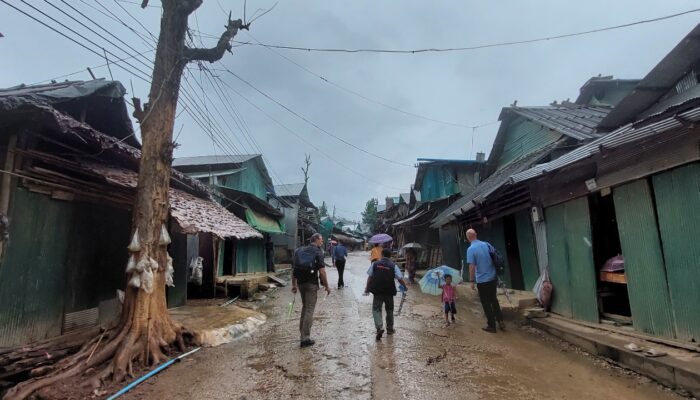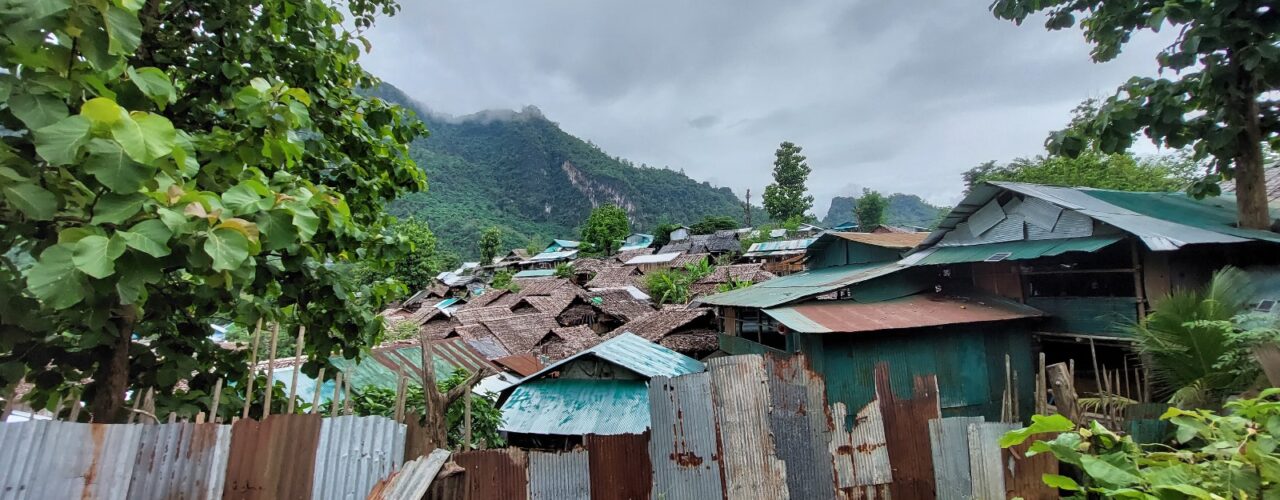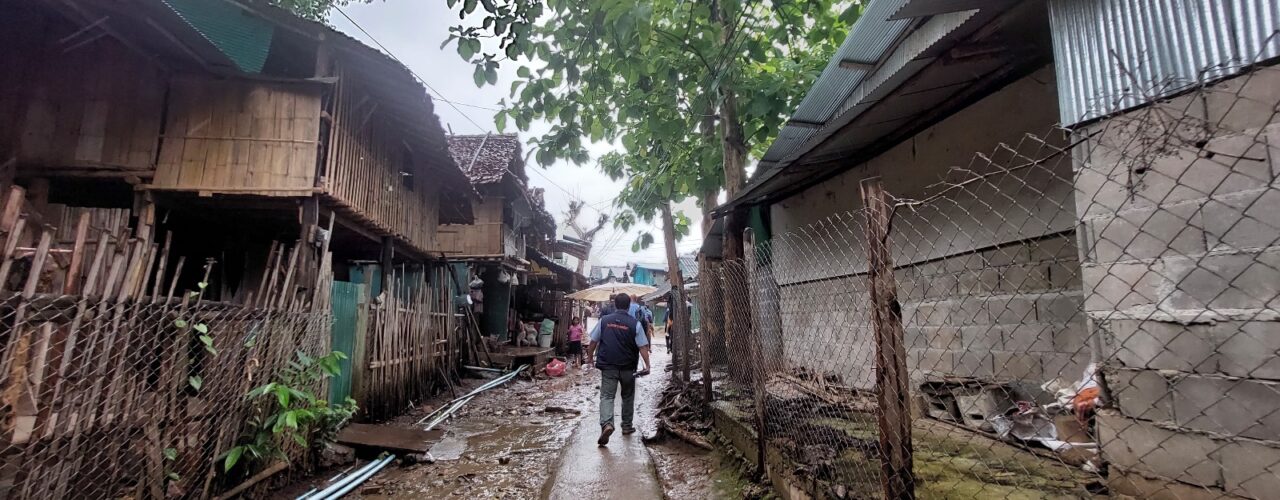A forgotten crisis: a story from Thailand

Can you tell something about the project?
The visit took place at the border area with Thailand as meetings inside Myanmar would draw too much attention and it would be too risky for local partners. Therefore, we travelled via Bangkok to Chiang Mai and from there to the Mae La refugee camp that is located close to the border with Myanmar. Myanmar is facing a huge crisis after the military coup in 2021. Although this situation is not very well known and not often in the news, it is estimated that Myanmar has almost two million internally displaced refugees. Those who manage to flee to the Thai side arrive in the camps, which are there for decades now. The refugees have been living there for years with restriction of movement.
We work with several partner organizations such as The Border Consortium and the Mae Tao Clinic where, amongst others, people are trained to go into the jungle to provide medical assistance to those in need. In the camp, our partners assist with accommodating people who crossed the border, provide food security and offer hope to those who are already living here for a long time– some even for generations. We train and educate people in work that can be done within the camp.
It is estimated that Myanmar has almost two million internally displaced refugees.
How does insecurity affect the projects?
Organizations working here always have to move with the restrictions imposed by the regime. It requires creativity, a very good understanding of the local context, and knowing the area literally like the back of your hand.
How can you offer hope?
Hope is not an empty shell, even when it seems hopeless. It is empty when you leave an area where people need you. We want to stay and not forget about this situation nor keep it silent. One way of doing so is that we want to help educate people by offering courses so they can at least do work inside the camp, and as said before, some can go outside camp. Recently we received the news that the US is going to issue some Green Cards again to accept refugees from this camp for resettlement in the U.S. This kind of events also offers future perspective for people.
Our visit – even if it was only a week – showed me again how valuable our work is. Local people also see that more and more INGOs are leaving Myanmar due to the fact that they are not able to implement their work anymore. Fortunately, Kerk in Actie is working through local actors, which allows us to continue our support. This strengthens our partnership but also always makes us realize that we have a responsibility!
Hope is not an empty shell, even when it seems hopeless. It is empty when you leave an area where people need you. We want to stay and not forget about this situation nor keep it silent.

What would you like to ask and say to other humanitarian organizations?
I am convinced that organizations understand that when they delve into this crisis, that it is not just about money, but also about the collective sound we need to make to penetrate the world stage. We need to make a verbal fist to put forgotten crises on the agenda.
What is your desire when it comes to forgotten crises in the world?
Let’s keep it close to our situation in the Netherlands and think about the upcoming elections. How do we keep forgotten crises on the agenda of our neighbours and politics? How can it be that our interest in our fellow human beings is ‘drying up’? It all starts with getting to know your neighbours and if we can, learn to look a little further. The world is bigger than your own street and it will have an impact on our lives. The flow of asylum seekers is much talked about at the moment, but where are all these people coming from? It is up to us to explain the story and find space for the somewhat more complex story that need to be told.
Why do you work with local organizations?
First of all, we believe that you can talk about localization for a long time, but you have to start living it. We help local partners financially, but we do not think it is necessary to go there, set up an office and do it ourselves (for them). As far as we are concerned, the work can be done perfectly well in collaboration. This way it is more sustainable, and long-term. The people of Myanmar can very well see for themselves what kind of help they need. I have never heard that they want us to go there. Thus, the donations that we receive are very targeted and there are little overhead costs. In addition, we are connected to churches worldwide. The strength of this connection is huge. We do not work only with Christians or with Christian partners – let that also be clear – but the network that we have is, I think, unique.
We believe that you can talk about localization for a long time, but you have to start living it.

How do you select partners?
These are often based on long-term partnerships. We build on our network and trust advice we receive from others.
What touched you during your visit?
We visited a school in the border region that ‘hosted’ an incredible number of children. The school had capacity for about a hundred children but we saw as many as three or four hundred children there. I heard no complaints, children made space for each other. That really touched me.
How do you see the future of the projects of Kerk in Actie?
All I can say is that we will stay as long as it is necessary. Our agenda for the next few years is to be present in Myanmar and Thailand. We were there, we are there and we will stay there.
Do you want to know more about the project from Kerk in Actie in Myanmar? Click here.
Date: 5th of September 2023
Author: Marianne Sijtsma
